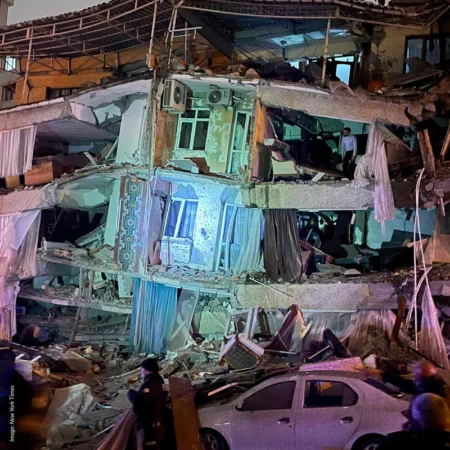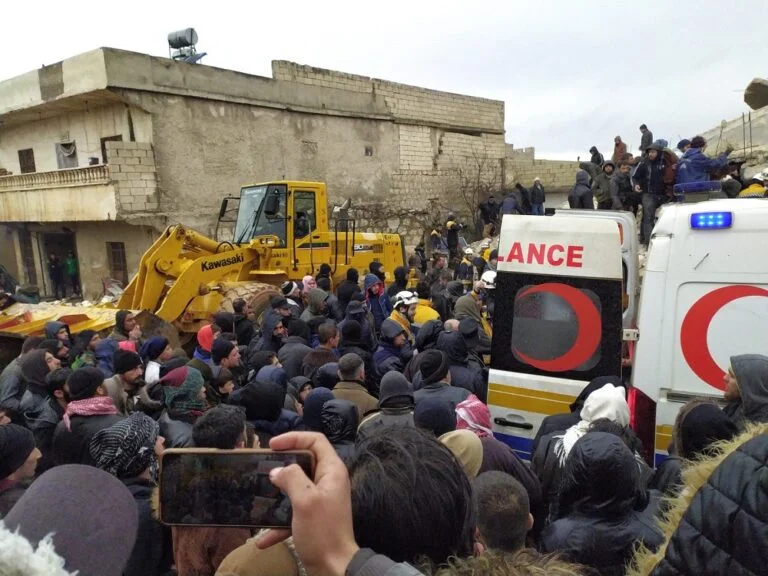Mohammed Hamza, head of Islamic Relief’s office in Idlib, northwest Syria, witnessed the destruction first-hand:
“It was 4am and I woke up to the house shaking from side to side. Everything was shaking, bricks were falling out. It felt like Judgement Day, and everything would be completely destroyed. My wife was screaming, and I went to my children but I didn’t know what we could do. We fled outside and saw thousands of people on the streets with just the clothes on their backs. People were shouting for their lost children – whole families were separated and lost.
“So many buildings were totally destroyed, and I saw tens of people under the rubble, with crowds trying to pull them out. People are still out in the streets – they don’t have anything to go home to and we are all scared of aftershocks.
“Right now, the Islamic Relief team here is distributing blankets, sheets and mattresses that we have in stock – but these will run out very quickly and we need more as soon as possible. People urgently need tents, food parcels and blankets. Hospitals are inundated with injured people, so we’re providing them with medicine and other supplies.”
This is the worst earthquake to hit Türkiye (Turkey) in 20 years. In addition to the rising toll of people killed or seriously injured, close to 6,000 buildings have been damaged or destroyed. Turkish authorities say about 13.5 million people have been affected by the quake.
In Türkiye (Turkey) the authorities have set up an air corridor to enable search and rescue teams to reach the zone affected, while approximately 380,000 people have taken refuge in government shelters or hotels, with others huddling in shopping malls, stadiums, mosques and community centres. Hundreds are taking refuge inside their cars to protect themselves against the cold weather.
These are also the worst quakes to affect Syria for over a century. Communities in northwest Syria are especially vulnerable, as years of violence and humanitarian crisis have destroyed vital infrastructure and left millions of people in extreme poverty.
According to the Syrian Civil Defence Organisation (the White Helmets), the death toll from the earthquake in the north-western regions of Syria rose to over 800 on the day of the quakes, while more than 5,000 people have been reported as injured. These numbers are expected to rise dramatically, however, due to the presence of hundreds of families under the rubble. Hundreds of buildings have collapsed, with all public and private schools now suspended.

